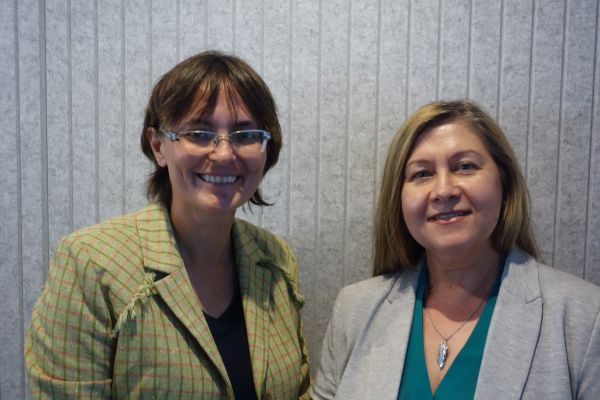Two Institute staffers contribute to ‘International Directory of National Archives’

Both archivists authored segments of the IDNA, the first ever comprehensive source of information about national archives around the world. While Gogina and Ushakova focused their efforts on entries about Eastern European countries, the IDNA as a whole covers the national archives of all 195 countries recognized by the United Nations, written predominantly by students of San Jose State University’s School of Information between September 2017 and December 2017.
The guide, authored by archivist Patricia C. Frankes and library scientist Anthony Bernier, highlights common themes and tensions in the archival institutions’ definitions of national identity and of what constitutes a nation’s archival collection. (Because it’s a database of national archives, USC Shoah Foundation’s archive is not mentioned.)
Each entry contains general information about the archive and its availability for researchers; historic information about each institution and its development; information about archives’ missions, functions, organization, services, and physical and digital infrastructures; and a current focus section that serves to spotlight one part of the collection’s holdings.
Gogina began work on her share of national archive entries during her last semester in the SJSU Master of Library and Information Science program. She completed seven entries as a graduate student and then an MLIS graduate, her first dedicated to the national archive of her home country: The State Archival Service of Ukraine, a government agency that oversees a network of 2,677 institutions and is responsible for preserving and providing access to 58 million items.
“I reached out to the national archives’ representatives, for review and approval of my work describing the national archive of each country,” Gogina said. “Getting a response back was not easy, and I appreciate the help of my colleagues at this particular stage of the process.”
Her work on an entry about the National Archives of Hungary connected her to colleagues she works alongside at USC Shoah Foundation.
“I would like to express huge thanks to my colleagues at USC Shoah Foundation, Anna Lenchovska and Andrea Szonyi,” Gogina said. “In the course of my work on the project, I reached out national archives’ representatives for review and approval of my work. Andrea helped me connect with Laszlo Csosz, the senior archivist of the National Archives of Hungary, who was instrumental in the review and sign-off of my entry.”
She also had help from USC Shoah Foundation’s regional consultant in Poland, Monika Koszynka, and its senior international program consultant, Martin Smok.
Ushakova was the first of the IDNA project team to complete an entry. She studied the Federal Archival Agency of Russia, which has archival materials that date back to the 11th century.
“On one hand, it was probably one of the easiest archives for me because I have experience working in Russian archives,” Ushakova said, “but at the same time, the initial level of knowledge enabled me to go deeper.”
Ushakova also studied institutional archives in Belarus, Estonia, Georgia, Kazakhstan, Latvia, Lithuania, Moldova and Uzbekistan. She says that while the Kazakh archive was difficult to profile, the Estonian archive was a pleasure to navigate, as the country had made a lot of progress in digitizing and making their sources available online.
“It’s still not common for traditional archives,” Ushakova said. “One of their resources – the map collection – I actively use now working on geographic terms for the USC Shoah Foundation thesaurus.”
Ushakova says that the directory is particularly beneficial for scholars looking to do research in other countries’ national archives.